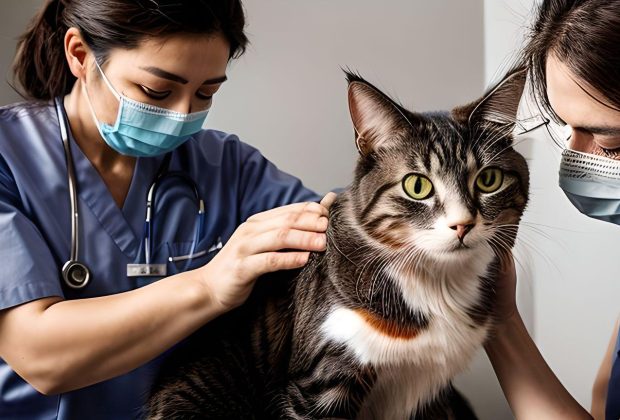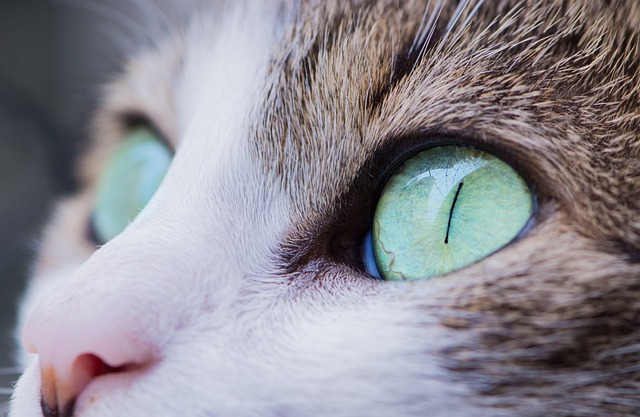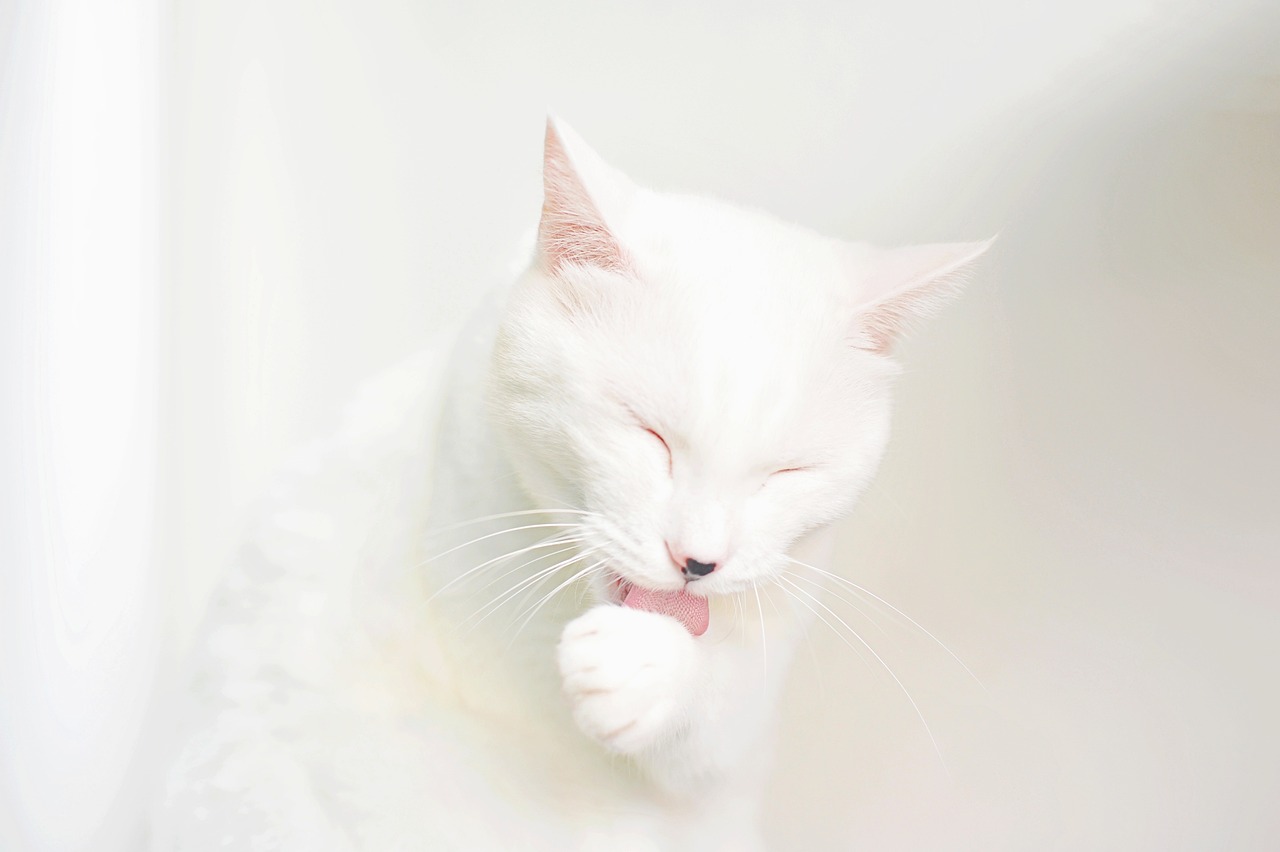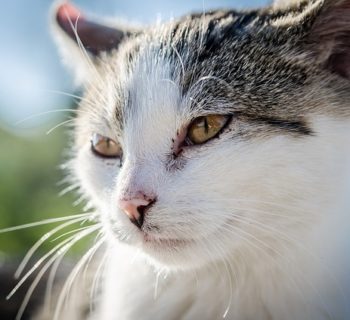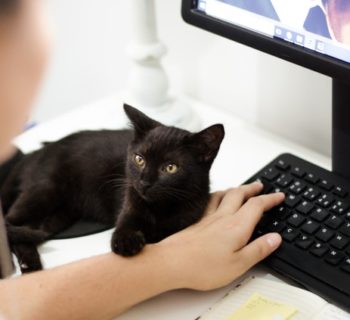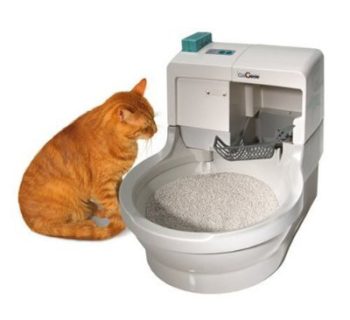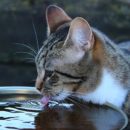Curiosity may lead us to wonder, do indoor cats need vaccines? While their feline friends who roam outside seem to need protection, it's easy to assume that our precious indoor companions are safe from harm.
However, the American Association of Feline Practitioners has something to say about that. Read on to discover the surprising recommendations and why they matter for the well-being of your beloved furry friend.
Table of Contents
What Vaccines Do Indoor Cats Require?
Indoor cats need core vaccinations, including feline panleukopenia virus, feline herpesvirus-1, feline calicivirus, rabies, and feline leukemia virus (FeLV) vaccinations for cats under 1 year of age.
The need for subsequent vaccinations depends on individual risk factors, and vaccines should be reassessed annually during regular veterinary visits.
Other recommended treatments for indoor cats include flea and worm treatments, as they can be brought into the house and cause allergies and infestations.
Regular preventative treatments are strongly advised, as the risk of harm from medications is rare compared to the harm caused by parasitic infestations.
Consulting with a veterinarian is advisable to determine the best approach for individual cats.

Recommended Core Vaccines For Indoor Cats
Indoor cats may not have as much exposure to infectious diseases as outdoor cats; however, they still require certain vaccinations to protect them from potential threats. According to the American Association of Feline Practitioners (AAFP), indoor cats should receive the following core vaccines:
- Feline Panleukopenia Virus: Also known as feline distemper, this highly contagious viral disease can be fatal to cats. Indoor cats should be vaccinated against it.
- Feline Herpesvirus-1: This respiratory virus is a common cause of feline upper respiratory infections. Vaccinating indoor cats helps prevent the spread of the disease and protects them from potential complications.
- Feline Calicivirus: Another common cause of respiratory infections in cats, the feline calicivirus can cause symptoms like sneezing, inflammation of the mouth, and lameness. Vaccination can help reduce the severity of the disease.
- Rabies Vaccinations: Rabies is a deadly disease that affects both humans and animals. Even though indoor cats have a low risk of exposure, they should still receive rabies vaccinations as required by state laws.
- Feline Leukemia Virus (FeLV) Vaccinations: Although indoor cats are less likely to encounter FeLV, it is still recommended to vaccinate kittens and young cats under one year of age who may have a higher risk of exposure.
Note: Vaccinations should be administered by a veterinarian and in accordance with their guidelines.
Factors To Consider For Subsequent Vaccinations
After the initial round of core vaccinations, subsequent vaccinations should be determined by individual risk factors. Factors that may warrant further vaccination include:
- Contact with stray cats carrying disease: If your indoor cat has any contact with stray cats or is at risk of exposure, additional vaccinations might be necessary.
- Potential encounters with rabid animals: Even if your cat lives indoors, there is still a possibility of encountering a rabid animal, such as a bat or raccoon. Keeping up with rabies vaccinations is essential to protect your cat and prevent the spread of the disease.
- Interaction with sick cats in shelters: If you frequently visit shelters or have multiple cats in your household, there is a higher risk of exposure to infectious diseases. Discussing with your veterinarian about appropriate vaccinations is crucial in these circumstances.
- Lifestyle changes: Events like divorce, death, or a move can introduce new cats or change a cat's environment, potentially exposing them to new infectious agents. Reevaluating vaccination needs in such situations is essential.
- Transitioning to outdoor living: If your cat is transitioning from an indoor to an outdoor lifestyle, additional vaccinations may be necessary to protect them from the increased risk of exposure to diseases.
- State laws requiring rabies vaccines: Certain states have strict laws regarding rabies vaccinations, even for indoor cats. It is important to comply with these regulations for the safety of your pet and public health.
Annual Vaccination Reassessment
Vaccine needs for indoor cats should be reassessed annually during a regular veterinary visit. The risk factors can change over time, and it is essential to adapt the vaccination schedule accordingly. Discussing any changes in your cat's lifestyle or potential exposure to new risks with your veterinarian will help ensure they stay protected.
Risks and Side Effects of Vaccines
Vaccines, like any medical intervention, carry some risks. However, the benefits of vaccination generally outweigh the risks. Common side effects that may occur after vaccination include lethargy, anorexia, fever, or local reactions at the injection site. These side effects are usually mild and resolve quickly.
Before deciding to vaccinate, it is crucial to consult with a veterinarian who can assess the risk of a life-threatening disease against the potential side effects of the vaccines for each individual cat. Veterinarians are trained to evaluate the overall health of the cat and make informed recommendations to ensure the best outcome.
Additional Preventative Measures For Indoor Cats
In addition to vaccinations, there are other preventive measures that should be taken to keep indoor cats healthy:
- Flea Treatment: Even indoor cats can be exposed to fleas brought into the house by vermin or on clothing. Fleas can cause allergies, itching, and hair loss in cats. Regular flea treatment is necessary to prevent infestation.
- Worm Treatment: Worm infestations can occur in indoor cats if they eat live prey or if mice and rats enter the home. Cats can also become infested with worms shortly after birth through their mother's milk. Regular worm treatment is recommended to prevent and manage infestations.
- Tapeworm Prevention: Fleas can transmit tapeworms to cats. Even the presence of just one flea in the house could result in a tapeworm infestation. Regular flea prevention is key to reducing the risk of tapeworms in indoor cats.
It is important to follow the recommended treatment protocols and consult with a veterinarian to select the most appropriate preventive measures for individual cats.

Seeking Veterinary Advice For Individual Cats
Every cat is unique, and their vaccination needs may vary based on individual factors. Seeking veterinary advice is crucial to determine the best approach for each cat. A veterinarian can assess the cat's overall health, lifestyle, and risks to provide tailored recommendations for vaccinations and other preventive measures. Regular veterinary visits ensure that indoor cats receive appropriate care to stay healthy and happy throughout their lives.
Key points
- Indoor cats need core vaccinations, including feline panleukopenia virus, feline herpesvirus-1, feline calicivirus, rabies, and feline leukemia virus (FeLV) vaccinations for cats under 1 year of age.
- Subsequent vaccinations depend on individual risk factors and should be reassessed annually during regular vet visits.
- Flea and worm treatments are recommended for indoor cats to prevent allergies and infestations.
- Regular preventative treatments are strongly advised, as the risk of harm from medications is rare compared to parasitic infestations.
- Consulting with a veterinarian is advisable to determine the best approach for individual cats.
FAQ
What Happens if I Don’t Vaccinate My Indoor Cat?
If you choose not to vaccinate your indoor cat, it may be at risk of contracting various contagious diseases. Without vaccinations, your cat could potentially suffer from feline calicivirus, rabies, feline distemper, feline viral rhinotracheitis, feline leukemia, chlamydia, and kennel cough. It is important to consider the health and well-being of your cat and consult with a veterinarian to ensure proper immunization against these potential threats.
Do Indoor Cats Need Vaccines in the UK?
Indoor cats in the UK generally only need to be vaccinated against cat flu and feline enteritis since they do not have exposure to the outside environment. As long as there are no plans to allow the cat outside in the future, vaccinations against feline leukaemia are not necessary. The vaccination process for kittens usually involves two initial injections a few weeks apart and a booster shot one year later.
Do Cats Need Vaccines if They Don’t Go Outside?
While cats that don't go outside are generally at a lower risk of contracting certain diseases, vaccines are still important for their overall health. Even though indoor cats may not have direct exposure to outdoor elements, there are still various ways diseases can be transmitted, such as through contact with humans or other animals. Vaccines play a crucial role in providing long-term protection and preventing the spread of diseases within the household. By keeping up with regular booster shots, you can ensure that your indoor cat remains safe and healthy throughout their lifetime.
What Are the Core Vaccines Recommended for Indoor Cats to Ensure Their Health and Well-Being?
The core vaccines recommended for indoor cats are usually the rabies vaccine and the FVRCP (feline viral rhinotracheitis, calicivirus, and panleukopenia) vaccine. The rabies vaccine is essential as it protects cats from this deadly and contagious disease, which is also a human health concern. The FVRCP vaccine helps protect against three common respiratory diseases in cats - rhinotracheitis, calicivirus, and panleukopenia. These diseases can be transmitted through contact with other cats, even if they are indoor-only cats, so vaccination is crucial to ensure their health and well-being. Regular booster shots may also be recommended by veterinarians to maintain the cat's immunity.

